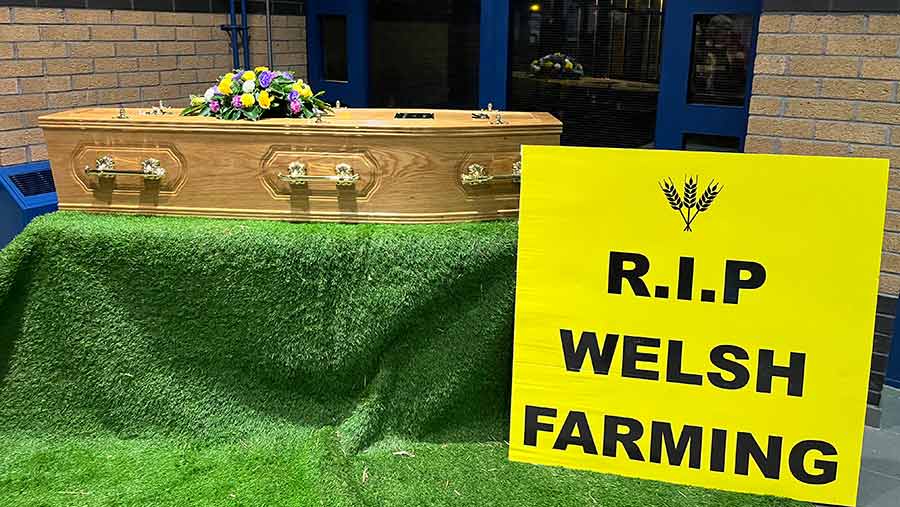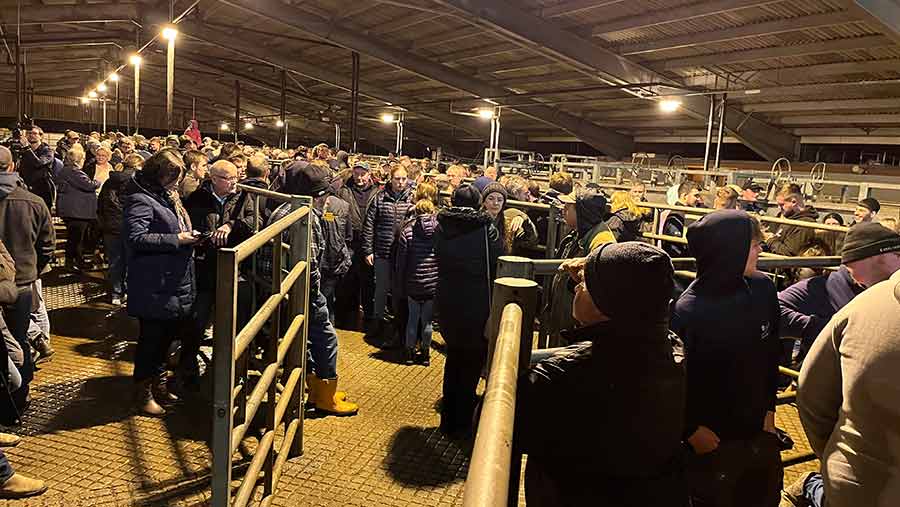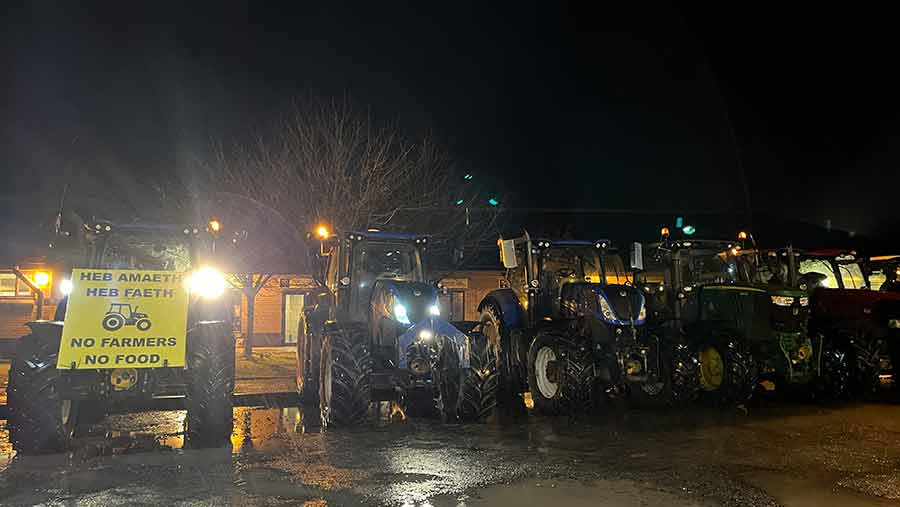Welsh farmers use coffin to warn of death of industry at demo
 © Debbie James
© Debbie James A coffin bearing the inscription “In memory of Welsh farming” summed up the despondent mood at a mass gathering of farmers in Carmarthen on Thursday night (8 February), with thousands converging to protest at government policies and an industry at “breaking point”.
Dozens of tractors snaked their way along the A40 in heavy rain to converge on Carmarthen Livestock Mart , with placards bearing a stark message for the Welsh government: “No Farmers, No Food”.
🏴 Hundreds of farmers have gathered for this protest against Welsh Government farming policies in Carmarthen. pic.twitter.com/VjxpoeutfG
— Farmers Weekly (@FarmersWeekly) February 8, 2024
“We can’t take any more of this, we have to make a stand until the Welsh government engages with us,” insisted Ceredigion beef and sheep farmer Wyn Evans, who chaired the rally of about 3,000 farmers.
See also: Pressure mounts on Welsh government to pause SFS plans

© Debbie James
Although the event didn’t echo the scenes in France, where farmers blocked roads, burned tyres and hurled eggs at government buildings, farmers were angry.
🗣️ “WE HAVE TO STAND TOGETHER.”@Nigelrefowens with a passionate message to the hundreds of Welsh farmers gathered in Carmarthen this evening. pic.twitter.com/zXPkXnysTw
— Farmers Weekly (@FarmersWeekly) February 8, 2024
They vented their dissatisfaction with the Welsh government’s Sustainable Farming Scheme (SFS), which will replace direct farm payments, as well as “restrictive” water quality regulations and a bovine TB eradication policy that refuses to consider targeted badger culling to prevent disease transmission.
It is that combination of policies that has brought the industry to breaking point, said Plaid Cymru member of the Senedd Llŷr Huws Gruffydd, one of many speakers at the event.
“Never before has the industry faced so many different challenges all at the same time,” he said.
Although there was no talk of direct action, meeting organiser Aled Rees suggested that “nothing is off the table”.
“It is up to them [the Welsh government] to come to the table to negotiate – you are the arm of strength to that,” the Pembrokeshire milk producer told farmers.
Businesses in the supply chain spoke of huge challenges with supply amid projections that the SFS would result in 122,000 fewer livestock units – the equivalent to 122,000 adult cattle or more than 800,000 sheep.

© Debbie James
The Kepak processing plant at Merthyr Tydfil processes 800,000 sheep a year.
Prys Morgan, who oversees its livestock procurement, said that without those animals “we don’t have a business”, one that contributes £200m/year to the Welsh economy.
One farmer who would have to significantly reduce livestock numbers to meet the requirements of SFS, which currently demands 10% tree cover on every farm, is Colin Jones.
“It won’t be worth farming. I am on quite a small income now and I have been on income support,” said Mr Jones, who farms beef and sheep near Llandeilo.
He hoped the protest would make the government and Welsh rural affairs minister Lesley Griffiths listen to the industry’s concerns.
“If they don’t, I think farmers are going to be quite annoyed and what happens next I wouldn’t like to say. But I think there are going to be problems and a lot of confrontation.”
Motion passed
A motion was passed for the meeting organisers to negotiate directly with the Welsh government.
The government stated last week that the aim of the SFS was to “secure food production systems, keep farmers farming the land, safeguard the environment, and address the urgent call of the climate and nature emergency”.
It encouraged responses to the final SFS consultation by the 7 March deadline.
